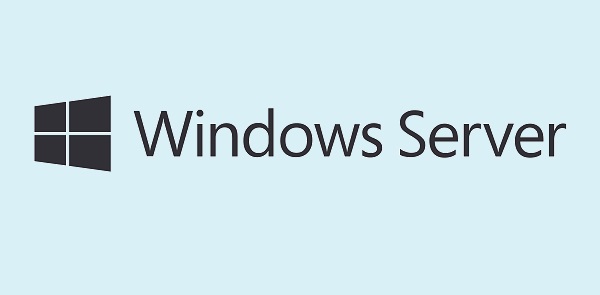Have you ever wondered , “What is Windows Server in the first place?”
“What are the advantages of using Windows Server and what is the difference from UNIX?”
Windows Server is a server that can operate stably with a feeling of operation similar to that of a Windows PC. However, some people may not understand the specific uses, strengths, and differences from UNIX-like (Linux, etc.).
Therefore, this time, we will explain about Windows Server by following the steps: •
Features of
Windows Server • Strengths of
Windows Server • Differences
between .
The latter half of the article also explains “differences in Windows Server editions (costs and features)” and “can it be built on AWS?”, So please read it to the end.
table of contents
- 1. What is Windows Server?
- 2. Windows Server edition list / comparison
- 3. Can Windows Server be built on AWS?
- 4. Summary
1. What is Windows Server?

Windows Server is a product series of operating systems for server computers developed by Microsoft. It was developed with the assumption that it will be introduced as a server machine used for building corporate systems.
Unlike UNIX-based OS, screen operation (GUI) is the basis, not command operation (CUI). Since the server can be operated with the same operation feeling as a Windows PC, it is also recommended for those who start the server for the first time.
1.1 Main uses of Windows Server
There are many uses for Windows Server as follows.
■ Main uses of Windows Server
1. File server that can share files, etc.
2. Centralized management of Windows PC by “Active Directory”
3. Development environment for applications, etc.
4. Construction of automation mechanism using applications that run on Windows
A characteristic feature of Windows Server is ” Active Directory “. Active Directory is a mechanism that allows you to control the permissions that can be viewed and operated for each user .
For example, in the case of information related to corporate management, it is necessary to set it so that only managers and managers can see it. However, it is not possible to set each computer individually.
Active Directory is useful in such cases. If you create a folder with separate viewing privileges from the management screen, you can solve it in one shot.
1.1.1 What is a “server OS” in the first place?
The reason why a ” server OS ” such as Windows Server is required is that ” high network performance and stability are required “.
For example, let’s say you build a file server on Windows Server. If you have 500 employees and you copy or download files at the same time, you will get “500 accesses at the same time”.
A “server OS” is required to build a mechanism that enables stable connections without disconnecting the line even when such a connection request comes.
1.1.2 Differences from client OS
![What is Windows Sever? Explaining how to use and editions, and whether it can be built on AWS [Freelance engineer project information | Professional engineer]](https://proengineer.internous.co.jp/topics/wp-content/uploads/2021/04/column_image12511_3.jpg)
You can use it in the same way as Windows Server even on a personal Windows PC that corresponds to a ” client OS ” that is not a server OS .
For example, if you want to create an “environment for running applications”, of course you can. It can be tolerated with some access.
However, the story changes when you develop a full-fledged application and multiple people update the data at the same time. “Stability” is essential to avoid sudden disconnections while running an application .
In this regard, Windows Server is compared to Windows OS for clients.
• Stability
• Functionality
Customized for servers that require.
moreover,
• Windows NT Server
• Windows 2000 Server
• Windows Server 2003, 2008, 2012, 2016, 2019
The stability has increased with each version, and now it is often used for the core system of the company.
1.2 Strengths of Windows Server
Windows Server has the following three strengths.
■ Strengths of Windows Server
1. The operation feeling is similar to “Windows PC” which is easy to handle even for beginners.
2. The file server function is also easy to set by imagining the folder of Windows PC.
3. Information such as “login authority” and “password” of employees Can be centrally managed
When you hear the word “server”, some people may think “I have to learn new ways to use it …”. However, in the case of Windows Server, the operation feeling is the same as that of Windows PC .
Therefore, it is easy to handle even for beginners, and there are few cases such as “I do not understand the operation and get stuck …”.
The file server function is also easy to set if you have experience with folder operations on a Windows PC.
In addition, there is “Active Directory” that makes it easier to manage employees, and you can easily manage login privileges and passwords.
Not only can security measures be strengthened, but management man-hours can also be reduced.
1.3 Differences between Windows Server and UNIX
The table below summarizes the differences between Windows Server and UNIX.
| Windows Server | UNIX-like | |
|---|---|---|
| merit | -Easy to operate and easy to handle -Easy to build a Windows system- You can also reduce management costs with Active Directory etc. | ・ You can start a server at low cost ・ Strong in security |
| Demerit | -Higher cost than UNIX-based servers | ・ If you are not familiar with CUI operation (command operation), you need to learn from basic operations. ・ You have to learn commands to use it comfortably. |
| Recommended usage | ・ Building Windows applications ・ Building file servers ・ Centralized management of personal computers using Active Directory | ・ Web server construction |
I will explain the small differences.
1.3.1 Scenes and applications where UNIX-like should be selected
UNIX-like is based on CUI operation (command operation) . However, when you hear CUI operation for the first time, it may be difficult to imagine.
Put simply,
• Open, copy, delete
files • Rename files
It is an image that you can operate using only the keyboard, including basic operations such as.
In the extreme, if you’ve never used CUI operations, you don’t even know how to open a file. Therefore, it is assumed that there is a person who is good at CUI operation in the company.
However, UNIX-like servers are not the only disadvantage. Although knowledge and experience such as CUI operation is required, if the problem can be solved, the following merits can be received.
■ Advantages of UNIX-based servers
• You can create a server even on a low-spec machine.
• You can set up a server that is strong in security.
1.3.2 When and where to choose Windows Server
Windows Server is recommended for ” when a person who normally uses a Windows PC operates the server “.
As I mentioned earlier, Windows Server and Windows PC are almost the same in terms of usability. Therefore, even people who have little experience in infrastructure management will find it easy to handle with manuals.
On the other hand, it should be noted that the maintenance cost of the server is high. Since the license fee is higher than UNIX, it is a good idea to check if you can secure a budget.
2. Windows Server edition list / comparison
![What is Windows Sever? Explaining how to use and editions, and whether it can be built on AWS [Freelance engineer project information | Professional engineer]](https://proengineer.internous.co.jp/topics/wp-content/uploads/2020/10/column_main17319.jpg)
The latest Windows Server 2019 is available in three editions . Costs and features vary depending on the edition, but first, let’s take a look at “Overview of Price and License System” on the official Microsoft page.
| Windows Server 2019 Edition | Optimal use | License model | CAL requirements [1] | Open Price NL ERP (USD) [3] |
|---|---|---|---|---|
| Data center [2] | Highly virtualized data center and cloud environment | Core base | Windows Server CAL | $ 6,155 |
| Standard [2] | Physical environment or small virtualized environment | Core base | Windows Server CAL | $ 972 |
| Essentials | Small business (25 users and 50 devices) | Special server (server license) | none | $ 501 |
Source: Overview of pricing and licensing | Microsoft
Datacenter / Standard is
• ” Core-based license ” to buy the required number based on the number of cores in the server (minimum 16 core license required)
• Purchase the required number based on the number of users accessing the server function and the number of devices Windows Server CAL (Client Access License) “
Is required.
Essentials , on the other hand , has a ” server license ” system in which one server is licensed regardless of the number of cores . Server features can be accessed by up to 25 users and 50 devices.
2.1 Generally recommended is Standard
The Standard edition covers all the key features of Windows Server 2019 . Therefore, if you are using Windows Server for the first time, this is recommended.
By the way , there is no problem even if you are assuming a ” virtual environment ” where multiple servers are set up in Windows Server .
This is because you can use the software ” Hyper-V ” to create a virtual server . If you want to use Windows Server while considering virtual servers, Standard is recommended.
2.2 Essentials is also recommended for small businesses
• 25 users ・ No plans to use more than 50 devices
• No assumption to use virtual environment using “Hyper-V” etc.
In such cases, we also recommend the Essentials edition.
You can use the basic features of Windows Server and deploy it at a lower cost than the Standard edition .
Another point is that you do not need a separate “CAL (Client Access License)” that is required according to the number of connected clients.
3. Can Windows Server be built on AWS?
![What is Windows Sever? Explaining how to use and editions, and whether it can be built on AWS [Freelance engineer project information | Professional engineer]](https://proengineer.internous.co.jp/topics/wp-content/uploads/2019/11/column_image14040_3.jpg)
In conclusion, Windows Server can also be built on AWS .
The Windows Server license is included in the AWS EC2 cost. In addition, the OS includes the CAL fee, so you do not need to purchase CAL.
Of course, it is also possible if you want to use the Windows Server license you already have. However, since it needs to be executed on the dedicated host, you have to check some settings.
Please also read the official page below for information on using Windows Server on AWS!
▶ Windows Server on AWS | AWS
4. Summary
This time, we explained Windows Server in the following steps: •
Features of
Windows Server • Strengths of Windows Server •
Differences between Windows Server and UNIX series
• List of editions
of flow.
Windows Server is easy to handle even for beginners, and is a server with abundant functions that can improve work efficiency and strengthen security measures.
Although it costs a license fee compared to UNIX-based servers, it has a good reputation for ease of installation.

